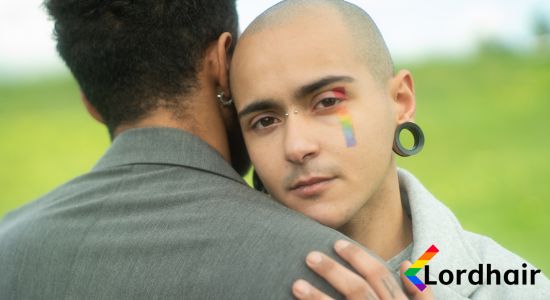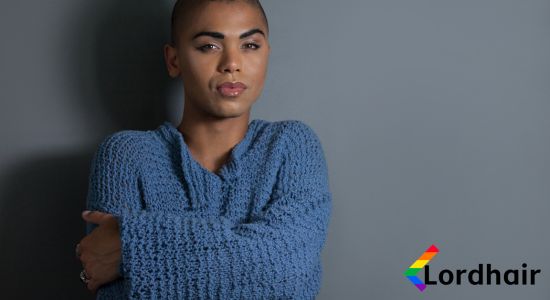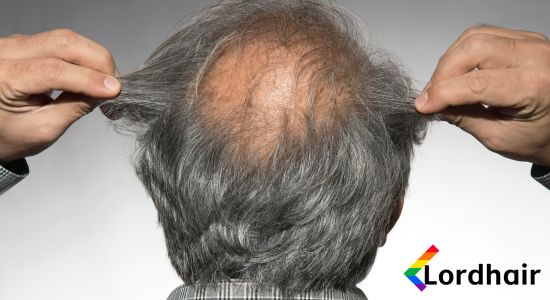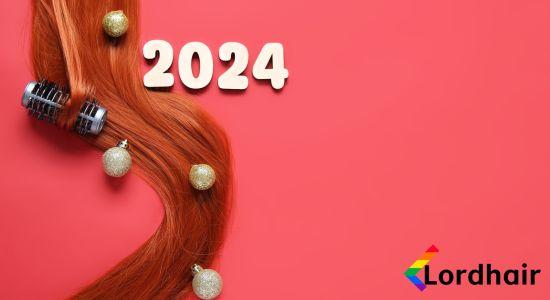What Is Different About Grief over Hair Loss in the LGBTQ+ Community?
- Written by Ray Fernandez
- | Published Jan 8, 2024
- |
- 3 min read
 Listen to the full text
Listen to the full text

Grief is an intrinsic part of being human; it is the emotional response to loss. It is a universal experience that affects individuals in various ways. However, when we consider the intersectionality of identity, we can see that certain communities may face unique challenges when it comes to grieving. One such community is the LGBTQ+ community, where issues like hair loss can carry additional significance.
In this blog post, Lordhair - a globally tursted brand for men's hairpieces - will explain the intersectionality of identity and the grieving process, specifically focusing on hair loss within the LGBTQ+ community.

Understanding Grief
To understand the intersectionality of identity and the grieving process, we need first to comprehend the complexity of grief itself. Grief is not a linear process, and its impact can be multilayered depending on the individual's experiences, cultural background, and personal identity. It can manifest in various forms, including emotional, psychological, and physical experiences.
The LGBTQ+ Community and Identity
The LGBTQ+ community faces unique challenges compared to the heterosexual and cisgender populations. Members of this community often confront stigma, discrimination, and prejudice, which can impact their mental and emotional well-being. For LGBTQ+ individuals, their identity is a significant part of their lives, and any loss they experience, including hair loss can be closely related to their sense of self.

Hair Loss as a Loss of Identity
Hair loss, also known as alopecia, can be an emotionally challenging experience for anyone. However, for LGBTQ+ individuals, hair often carries an additional layer of importance in the construction of their identity. Hair is often seen as an expression of individuality, and style, and a symbol of self-expression and confidence. Hair loss can intensify feelings of loss and affect the individual's sense of identity.
Grieving the Loss of Hair
Grieving the loss of hair as an LGBTQ+ individual may involve a complex range of emotions. It is important to acknowledge and validate these emotions as an essential part of the healing process. By reflecting on their unique experiences, individuals can find solace and develop coping strategies for their loss.

Grief support is crucial for anyone experiencing loss, regardless of their identity. However, it becomes even more important for individuals who face intersecting challenges. The LGBTQ+ community has several resources available to support those dealing with hair loss and grief. LGBTQ+ support groups, therapy, and online forums can provide a safe space for individuals to share their experiences, gain insights, and find solace.
- The hair loss experience of a transgender woman
- The history of wigs in LGBTQ culture
- Why hair loss is a complex aspect of transitioning
Promoting Awareness and Compassion
Last month's Grief Awareness Week served as a reminder that grief is a universal experience that everyone goes through at some point in their lives. However, it is also an opportunity to shed light on the uniqueness of grief experienced by specific communities, such as the LGBTQ+ community. By increasing awareness and understanding, we can create a more compassionate and inclusive society that values and supports all individuals during their grieving process.
As we reflect on the intersectionality of identity and the grieving process, it is crucial to recognize the unique challenges faced by LGBTQ+ individuals, especially concerning issues such as hair loss. By acknowledging and supporting these experiences, we can work towards nurturing a more compassionate and understanding society. It is essential to promote inclusive spaces and encourage open discussions to ensure that everyone feels heard, understood, and supported during their journey of grief.
In conclusion, the intersectionality of identity and the grieving process is a vital aspect to consider when discussing the experiences of different communities. For LGBTQ+ individuals, hair loss can have a significant impact on their sense of self and identity. By raising awareness and supporting these individuals, we can contribute to a more compassionate and inclusive society where everyone's grief is acknowledged and validated.

Ray is a guest contributor to our blogs with an extensive background in PR. Ray loves to discuss his own hair system journey by offering insights into wearing and styling a toupee wig as well as providing observations on the role of hair in sexual and gender identity from an LGBTQ+ perspective. Be sure to check out more of Ray’s Diversity content



